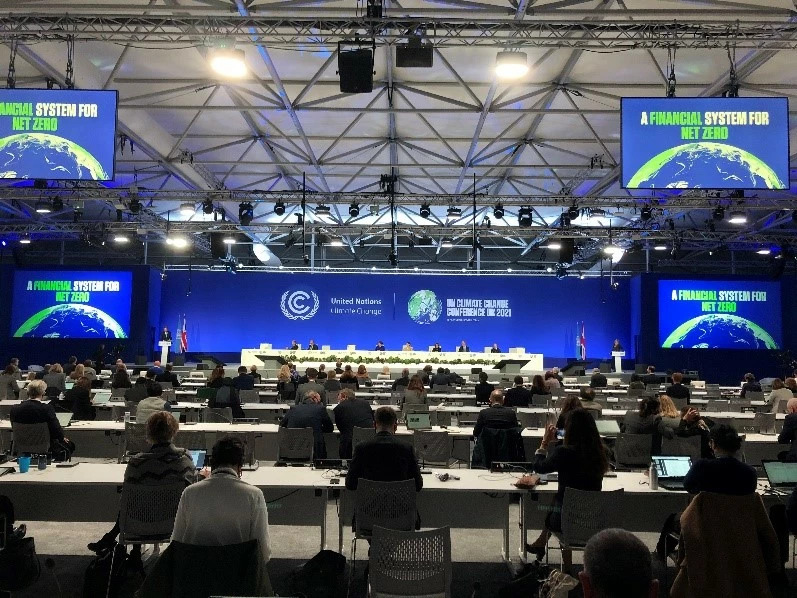Significant move by nearly 500 global financial services firms
Finance Day importantly saw the launch of the Glasgow Financial Alliance for Net Zero by 2050 – GFANZ.* In this significant move nearly 500 global financial services firms agreed to align USD 130 trillion – some 40% of the world’s financial assets – with the climate goals set out in the Paris Agreement, including limiting global warming to 1.5°C. Never has a COP main plenary handled A FINANCIAL SYSTEM FOR NET ZERO with central banks, the Financial Stability Board, regulators, the IMF, financial reporting standard setters and other monetary policy dignitaries. 100+ central banks released the NGFS Glasgow declaration – Committed to action. Heads of global financial firms reinforced the net-zero transition message of responsible phase out of fossil fuels combined with further scale up of energy efficiency and renewable energy. In the words of GFANZ Co-Chair Mark Carney:
“It is about client focus, going to where the emissions are to help get them down. So, companies that have plans in place to reduce the emissions, will find the capital, those who don’t won’t. So highly recommend getting those plans in place.”
UK aims at being the first net-zero aligned financial centre
The shape and form of net-zero transition plans for corporates and financial institutions are set to be the subject of intense scrutiny over the coming years. The UK announced its ambition to be the first net-zero aligned financial centre (factsheet launched), requiring big companies and financial institutions to publish plans on their low-carbon transition by 2023.
The need for consistent data, disclosures and transparency around climate change has been identified as one the significant enablers for risk-based financial decision-making. Expectations have been raised by the private sector on policymakers and regulators to step in and create a level playing field of consistent climate disclosures. Here, the IFRS Foundation announced the formation of the International Sustainability Standards Board (ISSB), aiming for a global baseline of high-quality corporate sustainability disclosure standards for the impact of ESG factors on company value. This effort will build upon the recommendations from, among others, the Taskforce on Climate-Related Financial Disclosures (TCFD).
On the regulatory side, considering that sustainability-related funds have gained significant traction with retail investors, financial firms are likely to face increased scrutiny from supervisory regulators on their green products to ensure the continued trust of the public.



